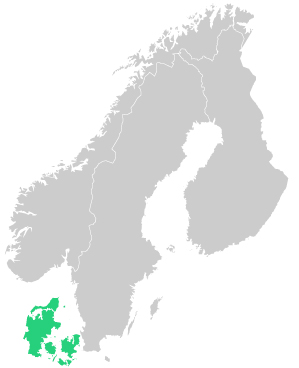sign up for webinar on the new holiday act
Therefore, it will also have a significant impact on all companies and the administration of employee holidays.
There are many new initiatives in the new Danish Holiday Act. Here, we will focus on the following:
- The purpose, content and administration of the transitional period
- Freezing holiday pay
- The new Danish Holiday Act’s significance to companies’ administration: Four tasks for you as an employer
The purpose, content and administration of the transitional period
The major change with the new Danish Holiday Act is that the method of accrual and taking holiday will change. Under the current Danish Holiday Act, you may not receive the right to paid holiday until up to 16 months after your appointment. The qualifying year is from 1 January to 31 December, and the settlement year is 5 months later, namely from 1 May to 30 April.
The new Danish Holiday Act does away with this, as you now have to virtually take your holiday simultaneously with the date of accrual. Therefore, many people refer to the new Danish Holiday Act as concurrent holiday.
As the Act comes into force on 1 September 2020, the transitional period has already been determined as 1 January 2019 to 1 September 2020. To provide a better overview, I have chosen to divide the transitional period into two parts, which I name as follows:
PERIOD A, which runs from 1 January 2019 to 31 August 2019
PERIOD B, which runs from 1 September 2019 to 31 August 2020
The two periods are associated with various procedures and tasks for companies, as reviewed below.
PERIOD A – 1 January 2019 to 31 August 2019
During this period, employees will continue to accrue holiday according to the existing Danish Holiday Act. During the 8 months, the employee will accrue 16.67 holiday days. Therefore, the accrued holiday must be taken between 1 May 2020 and 31 August 2020.
You must be aware that at the end of the transitional period (31/08/2020), and only in this year, a special rule applies. There is the option to take outstanding holiday for 1 more month – namely until 30 September 2020.
PERIOD B – 1 September 2019 to 31 August 2020
Here, we are dealing with the first holiday year after the new Danish Holiday Act and the holiday hours allocated within this period are frozen in a new fund.
The fund is called Lønmodtagernes Fond for Tilgodehavende Feriemidler (Employees’ Fund for Outstanding Holiday Funds), and in this text it will be referred to as the Fund.
Holiday pay corresponding to the accrued holiday will only be paid when the employee leaves the labour market, which maybe due to moving abroad, early retirement or old-age pension.
Depending on whether you are an employer or employee, the two periods have different implications.
read more about how azets can assist you
Freezing holiday pay seen from an employee’s point of view
Some employees will consider freezing to be a negative action, but each employee will not actually experience a negative financial impact due to the freeze.
Quite the contrary. The frozen holiday pay will be indexed according to the annual real wage developments, according to DA’s structure statistics. Therefore, the employee will always get holiday pay revalued to the real value that corresponds to the time when they
leave the labour market.
Freezing holiday pay seen from an employer’s point of view
For an employer, the freezing means unique help for the company’s liquidity. At the same time, the company is recommended, with liquidity and interest rates in mind, to assess whether it would be more profitable to pay the holiday funds to the Fund together with the submission or do the administration themselves.
The employer shall annually and by 31 August confirm to the Fund that the employer will continue to keep not yet due outstanding holiday funds in the company.
Four tasks for you as an employer
Generally, there will be no need to give notice of the transition to the new Danish Holiday Act unless extra holiday entitlement or something else in the appendices to the Danish Holiday Act changes to the detriment of employees.
The freezing of holiday funds from the transitional period will mean that the employer must choose whether they wish to self-administer the saved holiday funds or pay the amount owed for an employee to the Fund.
We see the following tasks as being imminent for the employer, namely:
1a. Employers choose to selfadminister amounts
This solution means the employer may use the frozen holiday funds as a form of liquidity. Therefore, they should only deposit it when the employee reaches state pension age or otherwise leaves the labour market.
The employer may at any time choose to pay the amount due for an employee to the Fund. Employers are obligated to pay interest on the amount owed with an annual wage index adjustment rate equivalent to wage developments until the amount is paid.
The indexation is determined by the Fund no later than 31 May, and is valid from 1 June to 31 May. The wage index adjustment rate in 2017 was 2.2%.
The deposit must be made no later than the time when the employee must have the amount paid out: upon leaving the labour market.
1b. Employers choose to entrust administration to the Fund
The Fund’s task here is to ensure that the correct interest is paid on outstanding holiday funds. The interest due will depend on the annual results of asset management in LD (Lønmodtagernes Dyrtidsfond).
All employees will receive information annually on their balance statement with the Fund.
2. Updating employment contracts
The employer should ensure that all employment contracts are correct and refer to the appropriate provisions of the new Danish Holiday Act. I recommend that you either state that you refer to the Danish Holiday Act applicable at any given time, or describe the following topics:
- Holiday in general
- Holiday supplement
- Advance holiday
- Extra holiday entitlement – will you continue to award at new year or at continuous earnings?
3. Updating the personnel policy
The employer must ensure that they have revised their personnel policy to reflect the new Danish Holiday Act. The personnel policy should include the following items as a minimum:
- The transitional period
- Handling extra holiday entitlement
- The period from 1 September 2020 onwards
- Major changes
4. Employees must be ready
I recommend that you ensure that your employees are aware of the new Danish
Holiday Act and its contents in good time. The information should consist
of teaching employees and concrete information about the upcoming changes.
Azets is happy to assist with the training or can send PowerPoints that can prepare your employees. We have also developed standards that you can use to ensure you that your employees have received the necessary information about the new Danish Holiday Act and the transitional period.
ESPECIALLY for those employees who are new or returning to the labour market
It is possible that employees who are new or returning to the labour market can take holiday via the special fund holiday.
This applies to employees who are appointed from 1 September 2019 and during 2020. They will be able to take 8.3 paid “fund holiday days” accrued according to the applicable Danish Holiday Act.
It is up to the individual employee to make use of this scheme. If this is to be used, the employee must notify the Fund.
Do you need assistance?
If you are an employer and need advice relating to holiday legislation or other employee/HR-related matters, please feel free to contact us. Read more

